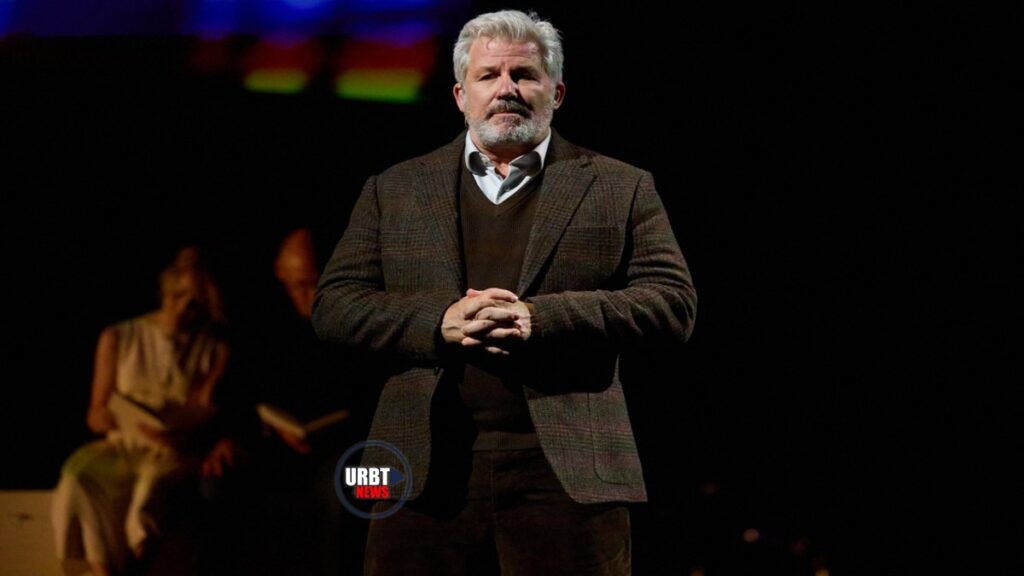Published
3 months agoon
Unravelled Aphasia on Stage. Initially, the thought of a stage play about aphasia filled me with skepticism. As a journalist, author, pastor, and counselor, I questioned the appropriateness of dramatizing such a devastating disease. I walked into the theater prepared to find fault, armed with pen and notepad, ready to critique what I assumed would be a misguided endeavor. What right did the creator, Jake Broder, and director, James Bonas, have to tackle such a sensitive subject?
Overview
The lobby’s mental health displays, while appreciated, seemed like a preemptive attempt to soften the blow of an impending “fiasco.” However, a turning point arrived in the form of Emma Heming Willis’s book, “The Unexpected Journey,” detailing her and Bruce Willis’s experience with aphasia and frontotemporal dementia. Emma’s willingness to associate with the play instilled a newfound confidence. Understanding their journey provided a critical lens through which to consider “Unravelled.”

The play tells the intertwined stories of Dr. Anne Adams, a biologist and painter, and Maurice Ravel, the famed French composer, both grappling with frontotemporal dementia (FTD) nearly a century apart. What began as detached observation soon morphed into immersive experience. I found myself drawn into their mindset, feeling the confusion and disorientation that characterize the disease. By intermission, I was no longer merely a spectator; I was emotionally invested in their struggles.
The play’s brilliance lies in its ability to convey the disorientation and frustration experienced by those with FTD. The fragmented scenes, the shifting perspectives, and the at-times confusing dialogue all contribute to a visceral understanding of the condition. This was not an easy watch; it challenged the audience to actively engage with the narrative, to piece together the disjointed fragments of reality as perceived by the characters.
The final scene, featuring separated chairs and an empty space, was particularly impactful. It poignantly illustrated the communication barriers erected by the disease, the inability to connect with a loved one who is physically present but mentally unreachable. Bravo to the writer and director for their insightful and sensitive portrayal.
“Unravelled” is more than just a play; it’s a catalyst for conversation, a vehicle for empathy, and a beacon of hope for those affected by dementia. It tackles a difficult subject with grace and sensitivity, offering a glimpse into the lives of individuals navigating the challenges of FTD. The play is part of a broader effort, including the UnRavelled Outreach brain health festival, to raise awareness, reduce stigma, and provide support for those impacted by this devastating condition. The fact that even Bruce Willis suffers from the same dementia is telling to the commonality of this horrible disease. I urge everyone to see this play if given the opportunity. We need to talk about mental health and we need to talk about diseases like frontotemporal dementia.
Frontotemporal dementia (FTD) is a group of brain disorders that primarily affect the frontal and temporal lobes of the brain. These areas are generally associated with personality, behavior and language.
Symptoms of FTD vary but can include changes in personality and behavior, difficulty with language, and problems with motor skills. Memory loss, typical in Alzheimer’s, is less prominent in early stages of FTD.
While both are forms of dementia, FTD typically affects personality, behavior, and language first, while Alzheimer’s primarily impacts memory. Also, FTD tends to occur at a younger age.
Currently, there is no cure for FTD, and treatments focus on managing symptoms and providing supportive care.
Organizations like The Association for Frontotemporal Degeneration (AFTD) and the Alzheimer’s Association offer resources, support groups, and information for individuals and families affected by FTD.

Joseph Collins CEO of Urban Television Network Corp.



Single Men & Step-Fatherhood: Crucial Considerations Before Taking the Plunge
Jesse Jackson Dies at 84: Civil Rights Icon’s Legacy


Indie Media’s Rise How They Thrived Before Venture Capital’s Diversity Push


Minority Births Surpass White Births: A Demographic Shift Impacting America


Hot Girl Summer: Your Guide to Confidence, Fun, and Intentional Living


Shrek as a Cautionary Tale: Unmasking the Ogre’s Life Lessons